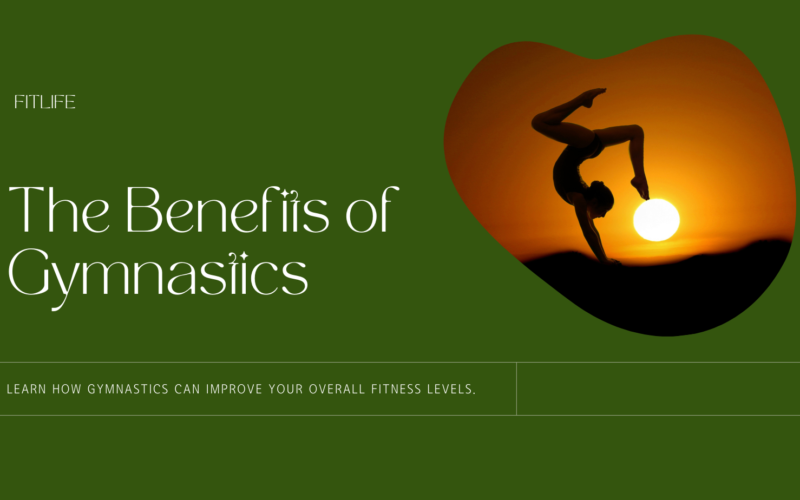Gymnastics, a sport renowned for its blend of strength, flexibility, balance, and coordination, holds a profound influence on overall fitness levels. Understanding the impact of gymnastics on physical health is paramount in appreciating its significance beyond the realm of competition and performance.
In this article, we delve into the multifaceted benefits of gymnastics training and its profound effects on promoting holistic fitness.
Health Benefits of Gymnastics
Numerous health advantages of gymnastics have been demonstrated by scientific research. First of all, gymnastics promotes better muscle extension and reflexes, which improves responsiveness and agility.
Regular gymnastics practice also develops greater flexibility, which helps to strengthen joint health and prevent injuries.
Gymnastics’ dynamic style improves balance and coordination while promoting a higher level of body awareness and control. .
Moreover, gymnastics exerts positive effects on cognitive function and motor skills, showcasing its holistic impact on physical and mental well-being.
Furthermore, gymnastics serves as an effective avenue for weight loss and body conditioning, facilitating the development of total-body strength and agility.
Impact on Physical Fitness
The impact of gymnastics training on health-related physical fitness is substantial, as evidenced by numerous empirical studies.
Research indicates that young gymnasts demonstrate improvements across all components of physical fitness, including muscular strength, endurance, flexibility, and cardiovascular fitness.
Furthermore, gymnastics plays a pivotal role in children’s physical development, encompassing enhancements in body composition, musculoskeletal fitness, motor skills, and cardiorespiratory endurance.
Comparative analyses between gymnasts and their peers underscore the superior physical fitness levels attained through gymnastics training, highlighting its efficacy in fostering comprehensive fitness outcomes.
Specialization and Performance
However, the issue of early sport specialization in gymnastics warrants careful consideration, given its implications for fitness and functional task performance. While specialization may yield performance advantages, it also entails inherent risks and trade-offs.
Studies have elucidated the complex interplay between specialization status, training volume, and performance outcomes, with findings indicating nuanced associations between specialization levels and fitness measurements among youth gymnasts.
Moreover, concerns regarding the heightened risk of injury associated with high specialization rates underscore the importance of adopting balanced training approaches that prioritize fitness optimization while mitigating injury risks.
The Role of Gymnastics in Holistic Development
Beyond its undeniable influence on physical fitness, gymnastics plays a pivotal role in fostering holistic development. From early childhood through adulthood, participation in gymnastics nurtures essential life skills and attributes that transcend the confines of the gymnasium.
Here, we explore the broader implications of gymnastics on cognitive, emotional, and social development.
Cognitive Development
Gymnastics stimulates cognitive development through the intricate interplay between mind and body. The execution of complex movements necessitates cognitive engagement, requiring athletes to process information rapidly and make split-second decisions.
Moreover, gymnastics fosters spatial awareness, problem-solving skills, and mental resilience, as athletes navigate challenging routines and overcome obstacles. Research indicates that individuals who engage in regular physical activity, such as gymnastics, demonstrate improved cognitive function, including enhanced memory, attention, and executive function.
Thus, gymnastics serves as a powerful catalyst for cognitive development, sharpening mental acuity and fortifying neural pathways.
Emotional Well-being
Gymnastics provides a nurturing environment for emotional expression and self-discovery. The pursuit of mastery in gymnastics instills a sense of accomplishment and self-confidence, empowering athletes to overcome challenges and set ambitious goals.
Moreover, the camaraderie and support fostered within gymnastics communities cultivate a sense of belonging and acceptance, bolstering emotional resilience and well-being.
Research suggests that participation in gymnastics is associated with reduced levels of stress, anxiety, and depression, underscoring its therapeutic value as a means of emotional regulation and stress management.
Thus, gymnastics not only strengthens the body but also nourishes the soul, fostering emotional well-being and resilience in its practitioners.
Social Development
Gymnastics fosters social development by promoting teamwork, communication, and interpersonal skills. Collaborative training environments encourage athletes to work cooperatively towards shared goals, fostering a sense of camaraderie and mutual support.
Moreover, gymnastics competitions provide opportunities for athletes to interact with peers from diverse backgrounds, fostering cultural exchange and cross-cultural understanding.
Research indicates that participation in team sports, such as gymnastics, is associated with enhanced social skills, including empathy, perspective-taking, and conflict resolution.
Thus, gymnastics serves as a crucible for social growth, forging lifelong friendships and fostering a sense of community among its participants.
How Does Early Specialization in Gymnastics Impact Overall Fitness and Performance?
Early specialization in gymnastics, while offering potential benefits for performance enhancement, can have significant implications for overall fitness and long-term athletic development. Here, we delve into the effects of early specialization on physical fitness, performance outcomes, and the associated risks.
1. Enhanced Performance Potential
Early specialization in gymnastics allows athletes to dedicate concentrated time and effort to mastering specific skills and techniques. This focused approach can lead to accelerated skill acquisition, technical proficiency, and competitive success at a young age.
Athletes who specialize early may have a competitive edge over their peers in terms of performance outcomes and achievement in gymnastics competitions.
2. Fitness Imbalances and Overuse Injuries
However, early specialization in gymnastics can also contribute to fitness imbalances and an increased risk of overuse injuries. The repetitive nature of gymnastics movements, combined with the demands of intensive training, can lead to muscle imbalances, joint stress, and overuse injuries such as stress fractures, tendonitis, and ligament strains.
Without proper rest and recovery, young gymnasts may experience burnout and physical exhaustion, compromising their overall fitness and well-being.
3. Limited Physical Development
Early specialization in gymnastics may limit athletes’ exposure to a diverse range of physical activities and movement patterns essential for holistic development.
By focusing exclusively on gymnastics from a young age, athletes may miss out on opportunities to develop fundamental movement skills, such as running, jumping, throwing, and catching, which are critical for overall athleticism and physical literacy.
This narrow focus can hinder overall fitness development and limit athletes’ potential in other sports or activities later in life.
4. Psychological Pressure and Stress
The pressures associated with early specialization in gymnastics, including intense training schedules, competitive expectations, and performance anxiety, can take a toll on athletes’ mental and emotional well-being.
The pursuit of perfection in gymnastics routines may lead to feelings of inadequacy, stress, and burnout among young athletes, affecting their overall motivation, self-confidence, and enjoyment of the sport.
Psychological factors play a significant role in performance outcomes, and excessive pressure at a young age can have detrimental effects on athletes’ long-term development and mental health.
5. Long-Term Athletic Sustainability
Sustainable athletic development requires a balanced approach that prioritizes overall fitness, skill acquisition, and injury prevention. While early specialization may yield short-term performance gains, it is essential to consider the long-term implications for athletes’ physical health and well-being.
Diversified training regimens that incorporate cross-training, strength and conditioning, and restorative practices can help mitigate the risks associated with early specialization while promoting holistic athletic development and long-term sustainability.
Conclusion
Gymnastics plays a multifaceted role in nurturing holistic development, encompassing cognitive, emotional, and social domains. Beyond its physical benefits, gymnastics stimulates cognitive development, fortifies emotional resilience, and fosters social skills, shaping well-rounded individuals equipped for success in all facets of life.
As we celebrate the profound influence of gymnastics on physical fitness, let us also recognize its transformative power in shaping hearts, minds, and spirits. Through dedication, perseverance, and a commitment to excellence, gymnastics empowers individuals to reach new heights and realize their full potential, both inside and outside the gymnasium.
FAQs
- How does gymnastics contribute to overall fitness levels? Gymnastics involves a combination of strength, flexibility, balance, and coordination exercises, which collectively enhance physical fitness levels.
- Can gymnastics help with weight loss and body conditioning? Yes, gymnastics can aid in weight loss and body conditioning. The high-intensity nature of gymnastics workouts burns calories and promotes muscle toning, contributing to body composition improvements.
- How does gymnastics training affect flexibility and joint health? Gymnastics training involves a wide range of dynamic movements that promote flexibility and joint mobility.
- What are the cognitive benefits of participating in gymnastics? Engaging in gymnastics stimulates cognitive development by requiring athletes to process information quickly, make split-second decisions, and coordinate complex movements.
- Is gymnastics suitable for individuals of all ages and fitness levels? Yes, gymnastics can be adapted to suit individuals of various ages and fitness levels.






